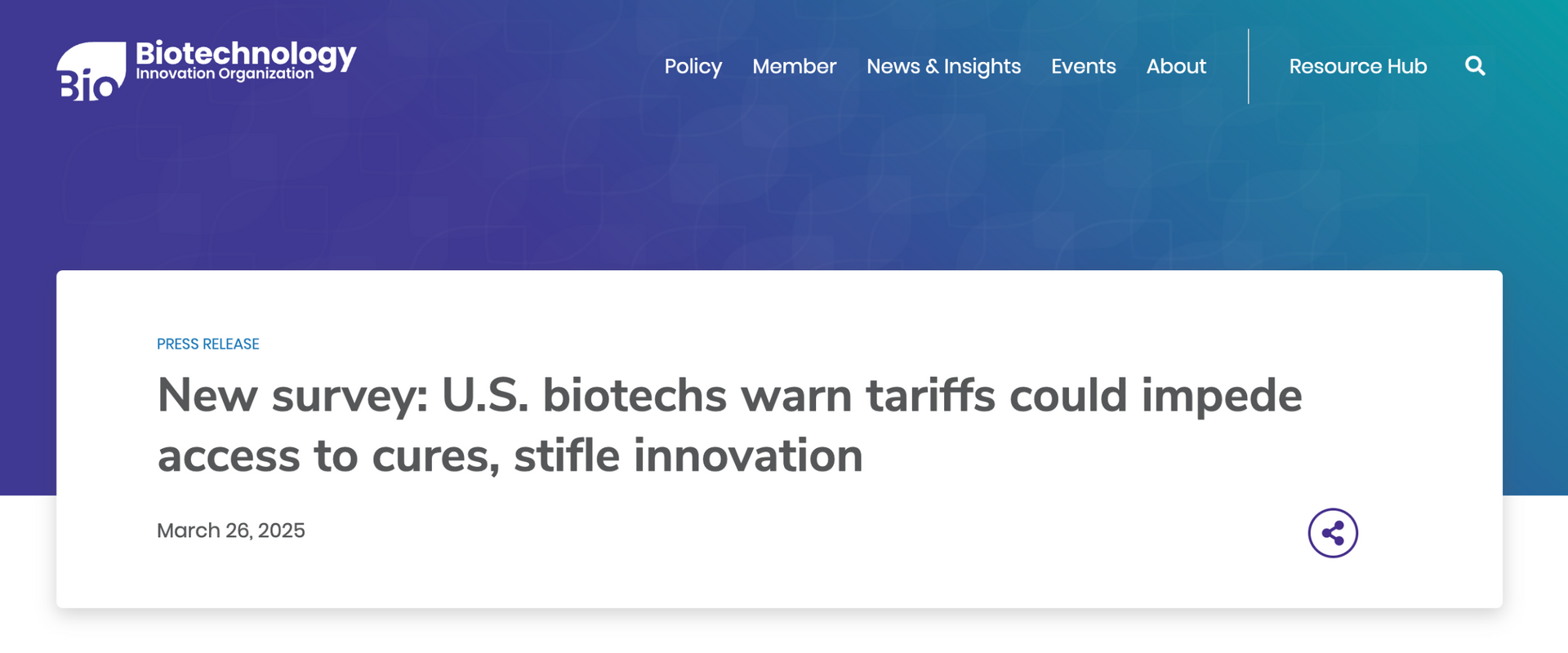MichBio Statement on Proposed Cuts to NIH Funding and Impact to Americas Leadership Innovation
MichBio Opposes NIH Cuts, Defending U.S. Leadership in Bioscience Innovation

The Trump Administration announced last Friday that it is drastically reducing so-called “indirect” payments by the National Institutes of Health (NIH) to universities, clinical centers, and research institutes. This move will be a catastrophic blow to scientific discovery and innovation in Michigan and across the U.S. It will quickly undermine America as a global leader in the life sciences, with broad and deleterious impacts on the economy and health.
MichBio, as Michigan’s biosciences industry association, represents almost 4,800 establishments statewide involved in the research, development, and manufacturing of medical devices, pharmaceuticals, agricultural and industrial biotechnology-based foods and products, health information technologies, bioscience product distribution, and testing and clinical trials. Our biosciences innovation ecosystem at its core is the university-based research complex – indeed Michigan’s research universities are top ten nationally in the amount of federal R&D funds received – which in turn provides the substrate for commercialization of biomedical technologies that save lives.
Our life sciences community is deeply alarmed over the capricious and arbitrary measure to limit NIH and other federal funding for university-based research. Any such restrictions are irrational and ill-conceived.
We adamantly oppose any efforts to diminish critical research that fuels Michigan’s innovation economy.
Funding of facilities and administrative expenditures are part and parcel of the total costs of conducting world-class research – they are real and documented costs. This funding provides the necessary critical infrastructure for cutting-edge biomedical research and has long been recognized by the NIH as key to maintaining the US’s preeminence in biomedical innovation. Support for indirect expenses is precisely why NIH funding is valuable in advancing medical research, fostering economic growth, and enhancing public health.
This decision will have deleterious implications for the Michigan and U.S. innovation economy and workforce and its ability to remain a cutting-edge leader in research and development. Cutbacks will force institutions to eliminate personnel, shut down research programs, halt or cancel clinical trials, and result in the collapse of U.S. biomedical discovery and education. The chaos and harm that will ensue will be immeasurable and will have a longstanding impact on practically every academic research and medical institution in the country. It will result in fewer training opportunities in research labs, diminishing the biomedical workforce development pipeline for years to come – as a top ten producer of STEM talent, Michigan can ill afford to lose its future life sciences workforce. Most importantly, there will be a significant and long-term impact on patients who depend on discoveries made in our institutions and others.
Moreover, we question the legality of the indirect cost caps as current law prohibits NIH from making such changes without the approval of Congress. In addition, the annual spending bill for HHS, and by extension, NIH, has language prohibiting changes to indirect cost rates. That’s done purposefully so research operations can run efficiently and without interruption.
Michigan’s and the national biosciences research enterprise simply can’t survive, much less thrive, such a callous attempt to destroy a viable innovation engine. This sudden policy announcement, coupled with recent disruptions to grant reviews and trainee funding, suggests that the Trump Administration deliberately wants to damage science.
We urge NIH leaders to rescind this dangerous policy before its harms are felt by Americans. MichBio asks the Michigan Congressional delegation to demand the Administration roll back the proposed measure and ensure that the NIH and NSF funding remains intact, and the U.S. biosciences economy continues to be the leader and envy of others globally.
RECENT ARTICLES



